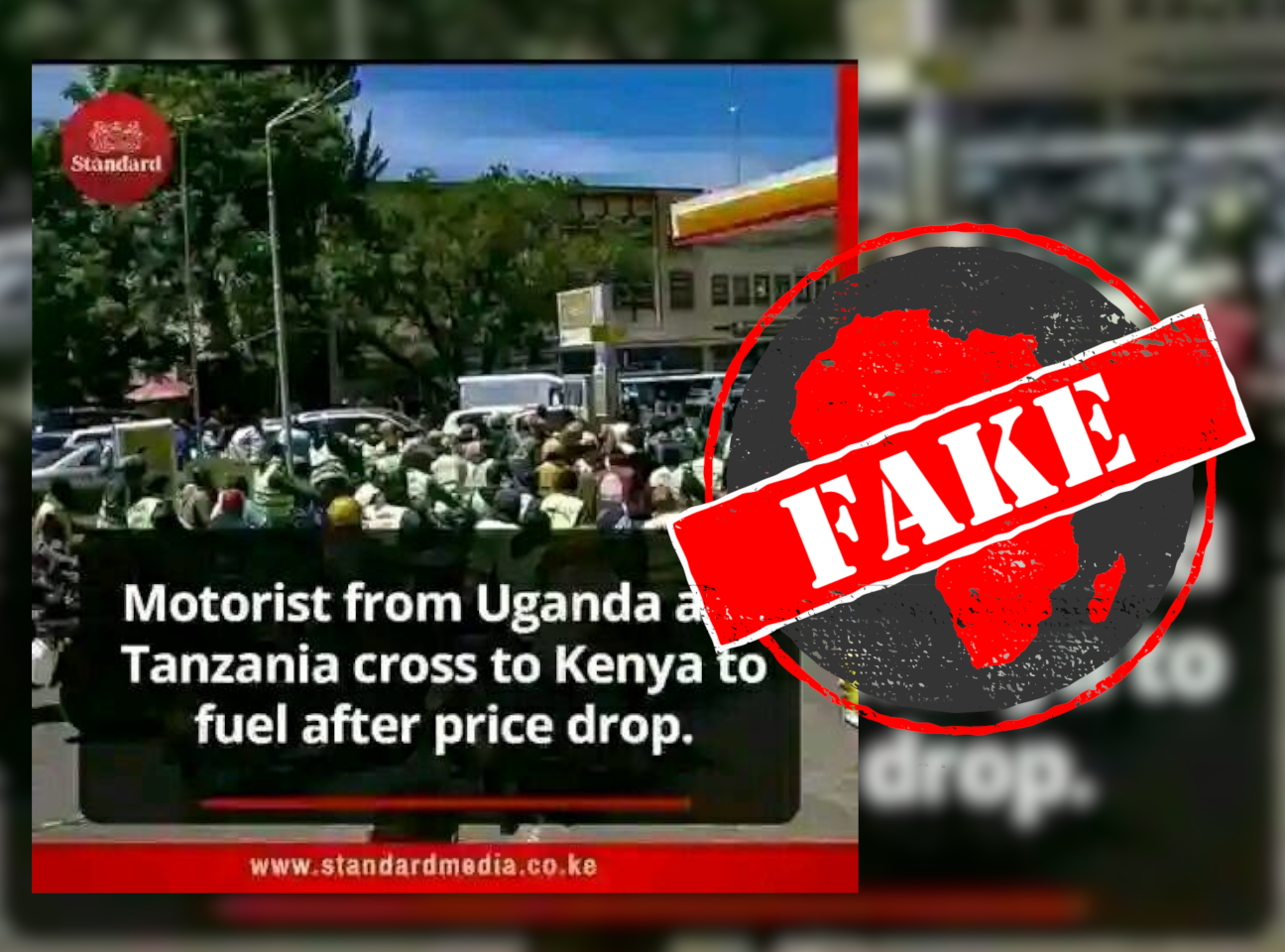IN SHORT: Fuel prices in Kenya have dropped significantly in March 2024. But a graphic claiming that citizens from Uganda and Tanzania are crossing into the country to fill up is fake.
“Motorist from Uganda and Tanzania cross to Kenya to fuel after price drop,” reads a graphic circulating on Facebook in Kenya.
The graphic features an image of motorbike taxi drivers queuing at a petrol station.
It also includes the logo and web address of the Standard Group, the Kenyan media house that publishes the Standard newspaper.
The graphic went viral after the Energy and Petroleum Regulatory Authority (EPRA) announced a fuel price cut of up to KSh7 per litre, one of the biggest reductions in months.
EPRA is an independent agency responsible for regulating the importation, refining, exportation, transportation, storage and sale of petroleum and petroleum products in Kenya.
On 14 March 2024, the agency announced that for the next 30 days, a litre of super petrol would cost KSh199.15, down from KSh206.36, while diesel would sell for KSh190.38, down from KSh195.47. EPRA reviews fuel prices monthly.
In October 2023, fuel prices increased sharply with petrol selling for KSh217.36 per litre and diesel at KSh205.48. At the time, local media reported that Kenyan motorists were crossing into Tanzania in search of cheaper fuel.
The graphic has been posted here, here, here, here, here, here, here, here, here, here and here. But is it legit? We checked.

Fake graphic
We noticed that the graphic incorrectly used the word “motorist” instead of “motorists”. We would not expect such an error from a reputable media outlet, as their graphics go through quality checks.
In the past, instances of fuel price hikes or shortages in Kenya have been widely reported. The news of Kenyan motorists crossing into neighbouring countries for fuel made headlines in 2021, 2022 and 2023. But we found no reports of motorists from Uganda and Tanzania flocking to Kenya to refuel in March 2024.
A reverse image search of the image in the graphic shows that it was first published on 4 April 2022. It was captioned: “People queue to purchase fuel at a gas station in Nakuru County, Kenya, April 4, 2022.”
We scoured the Standard Group’s Facebook and Twitter pages and found no such graphic published.
The graphic is fake and should be ignored.
Republish our content for free
For publishers: what to do if your post is rated false
A fact-checker has rated your Facebook or Instagram post as “false”, “altered”, “partly false” or “missing context”. This could have serious consequences. What do you do?
Click on our guide for the steps you should follow.
Publishers guideAfrica Check teams up with Facebook
Africa Check is a partner in Meta's third-party fact-checking programme to help stop the spread of false information on social media.
The content we rate as “false” will be downgraded on Facebook and Instagram. This means fewer people will see it.
You can also help identify false information on Facebook. This guide explains how.


Add new comment